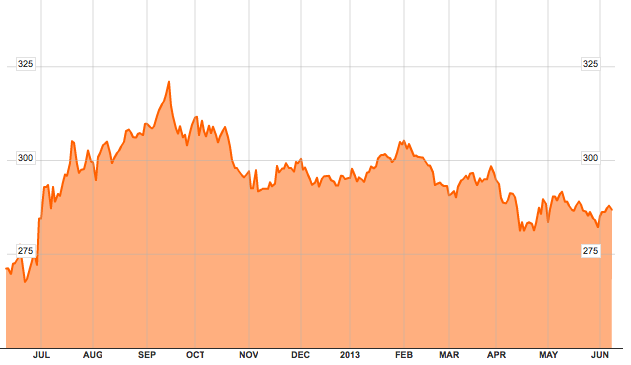Emerging Markets The Big Story of 2013
Post on: 26 Май, 2015 No Comment

As investors get more comfortable about the global economy and fears recede about a dreaded hard landing in China, investors have been pouring money back into emerging markets exchange-traded funds in the past few months.
Emerging market exchange-traded products (ETPs) attracted a record $27.1 billion in the fourth quarter, only slightly lagging the $30 billion developed market ETPs attracted in the quarter, according to BlackRock data.
This strength continued into January. Emerging market equities is really the big story of January, Dodd Kittersley, BlackRock’s head of ETP research, told CNBC last week. We’ve seen over $13 billion flow in to those products, with $7 billion going into broad-market funds.
Investors have clearly favored China, as concerns about its economy ease. Goldman Sachs’ Jim O’Neill, the man who coined the term BRICs. told CNBC, China is slowly adjusting to an economy not so dependent on exports or government investments. That’s what they need and what we all want from them.
And as those fears abate, investors are jumping back into the China stocks, pushing the MSCI China 50 A share index up nearly 35 percent in the past three months.
Just talking about China, China’s been an unbelievable story, BlackRock’s Kittersley said. China ETPs attracted $20 billion last year and over $4 billion in January.
But economist Nouriel Roubini warned that the BRICs have been over-hyped for some time. India, Russia, and China, all of them are moving towards state capitalism, and that’s actually going to slow potential growth, he told CNBC.
Roubini said that, in terms of growth, all emerging markets should not be lumped together. The success stories in Latin America are Chile and Colombia, not Brazil, he said, and there’s better growth in the Philippines and Indonesia than either China or India.
Biddiboo | Photographer's Choice | Getty Images
Echoing Roubini’s advice to be selective, Principal Financial’s Jim McCaughan told CNBC this week that he would not invest in a broad emerging market index fund. You have to be selective, he said, but unlike Roubini, he prefers China, Brazil, and Colombia to Russia or Argentina.
There are signs that investors are being choosy, even as they pour money into broad ETFs. We’re seeing clear demand for both for broad emerging markets as well as being able to be very specific and tactical with individual countries, BlackRock’s Kittersley said.
McCaughan of Principal Financial said that even with the renewed interest in emerging market stocks, U.S. investors could still allocate more money to emerging market stocks.
Compared with the opportunities in emerging markets, most investors based in the U.S. are pitifully low in their allocation, the investment strategist said. And 20 percent, 30 percent, 40 percent of your equities in emerging markets is not too outlandish, given the importance of those economies and given the likely growth —and particularly the growth of the middle class and how that will power economic prosperity.
This growth should help emerging market stocks outperform their U.S. counterparts, analysts believe. I do think the emerging markets represent an excellent buying opportunity here, Carmine Grigoli, chief investment strategist at Mizuho Securities, told CNBC. I think they tend to outperform the U.S. going forward.
Tune in: CNBC is the exclusive broadcast partner of the 6 th Annual Inside ETFs Conference. Be sure to catch On-Air Stocks Editor Bob Pisani (@BobPisani ) live from the conference throughout the day on Feb. 11 and 12, only on CNBC.














